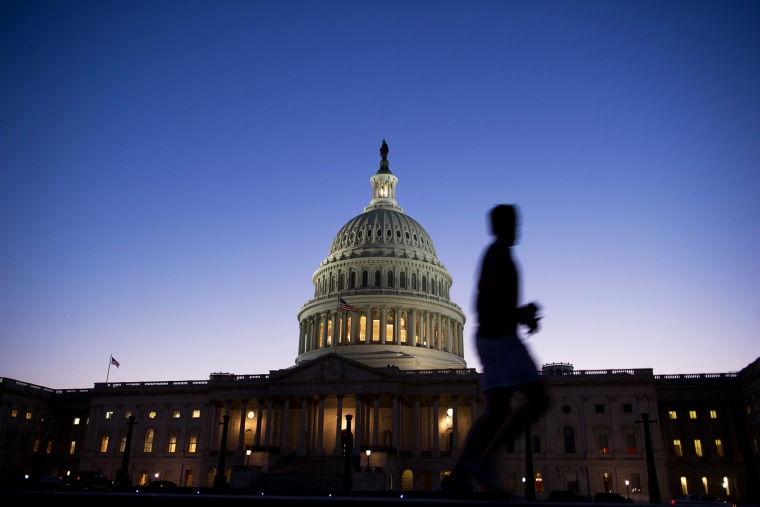Traditionally, when it comes to members of Congress, practically no one has cared about which members show up for which hearings and floor votes. It's always been perceived a bit like elementary school -- the kid who wins the perfect-attendance award gets a nice certificate, but it's only mildly impressive, and most folks are unmoved.
But in 2014, more so than any cycle I can think of, there's enormous interest in congressional attendance -- and a member who missed a hearing on some issue of significance can expect a hard-hitting attack ad.
Though both parties have made use of the tactic this year, it looks like Republicans got this ball rolling, though they may regret that now.
U.S. Sen. Pat Roberts attended slightly more than one-third of Senate Agriculture Committee meetings during the past 15 years of his political career in Washington, D.C, federal records showed Monday. The three-term Republican from Dodge City serves on the committee responsible for farm, nutrition and forestry issues, as well as Senate committees devoted to health, education, labor and finance topics. Documents related to committee attendance available from the U.S. Government Printing Office showed Roberts was present for 35.5 percent, or 71 of 201, of the agriculture committee's sessions from 2000 to 2014.
And if Roberts showed up for 35.5% of the hearings, that necessarily means he missed 64.5% of the hearings.
The Topeka Capital-Journal's report added that Roberts missed a variety of key hearings in recent years, on everything from avian flu to draughts to disaster assistance.
This report comes on the heels of related news from Iowa, where right-wing Senate hopeful Joni Ernst (R) has made committee attendance an important part of her attacks against Rep. Bruce Braley (D) -- despite the fact that her own attendance in Iowa's state Senate has been rather abysmal.
In New Hampshire, meanwhile, former Sen. Scott Brown (R-Mass.) not only missed every hearing on border security from his tenure on the Hill, but he also appears to have fibbed about it.
I understand the point of the criticisms -- in an era in which Congress struggles mightily to complete even routine tasks, to learn that an elected lawmaker sometimes doesn't even show up for hearings, briefings, and votes reinforces perceptions of Washington ineptitude. Pat Roberts, for example, is presenting himself as farmers' best friend in D.C., but when the Agriculture Committee holds hearings, the senator usually just blows them off.
That said, I'd still recommend caution about the line of attack, because it's occasionally unfair. Senators routinely serve on multiple committees, some of which schedule hearings at the same time. When a lawmaker chooses to attend one, it doesn't necessarily mean he or she has no interest in the other issue.
The broader question, though, is coming to terms with how this became a campaign issue in the first place. I suspect it's the outgrowth of a do-nothing Congress -- there's no real point in evaluating the laws members passed on their merits, since Congress hardly even tries to legislate anymore.
Left with little else, maybe committee attendance is one of the few metrics left for evaluating how a member spends his or her time?
